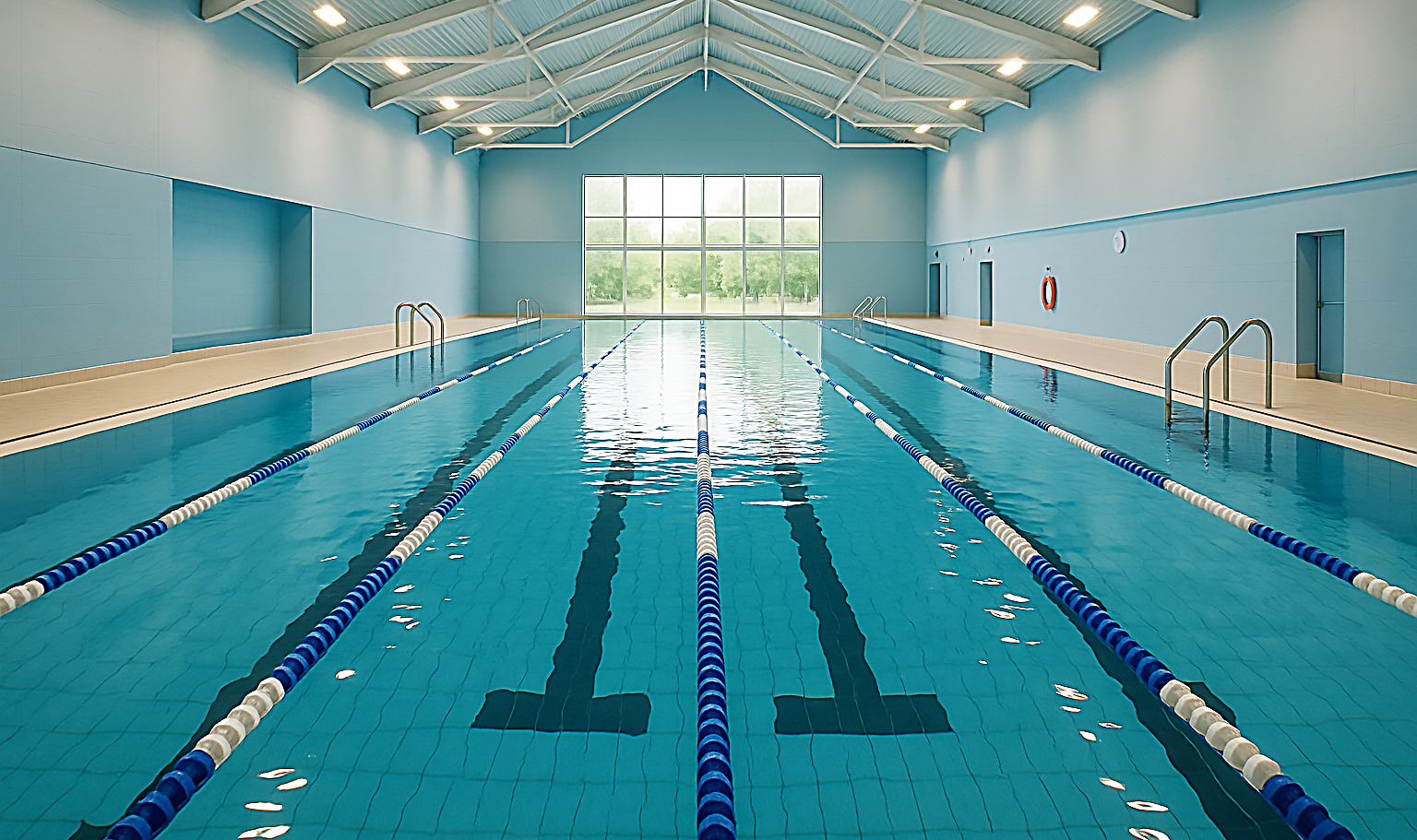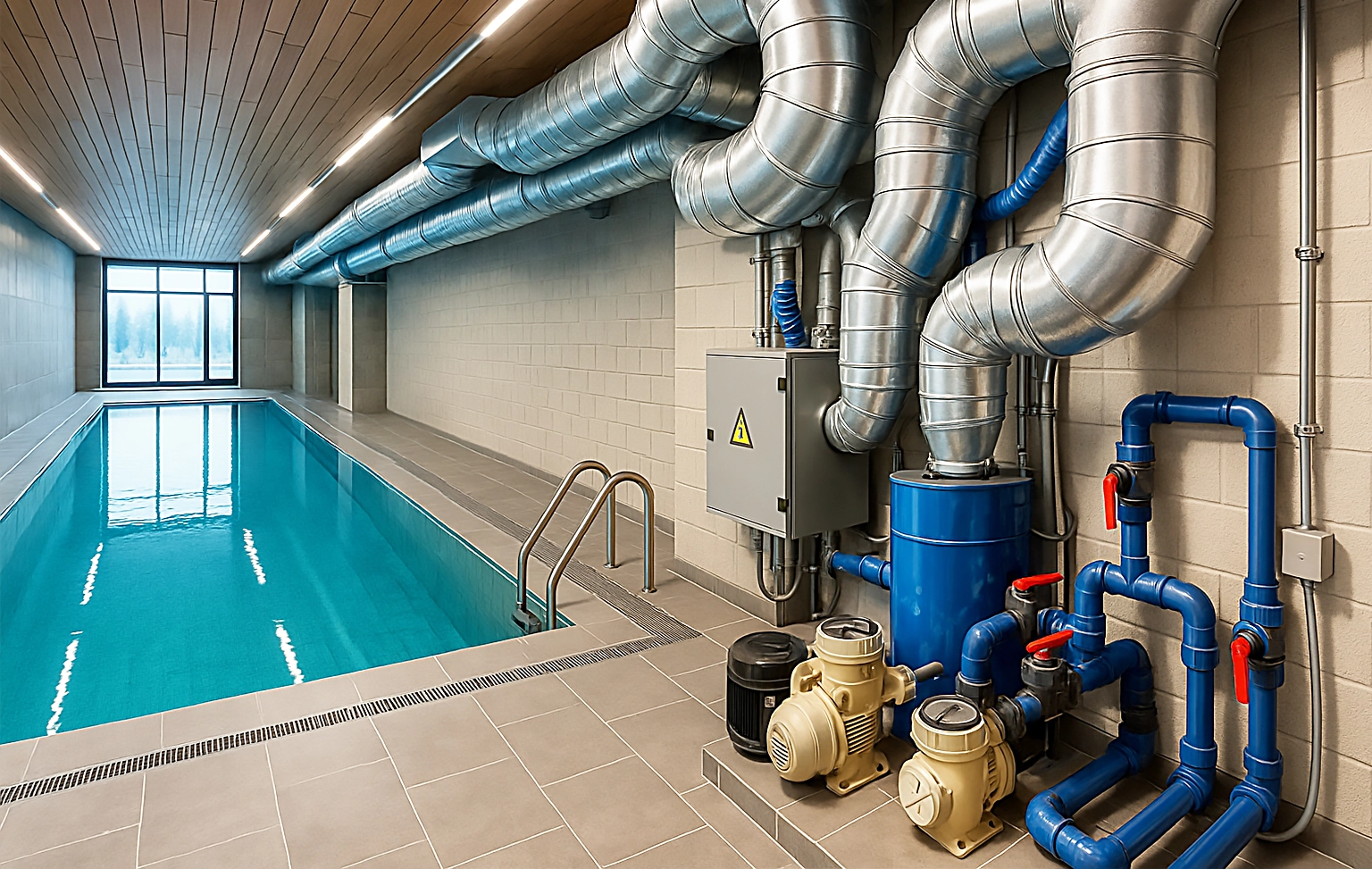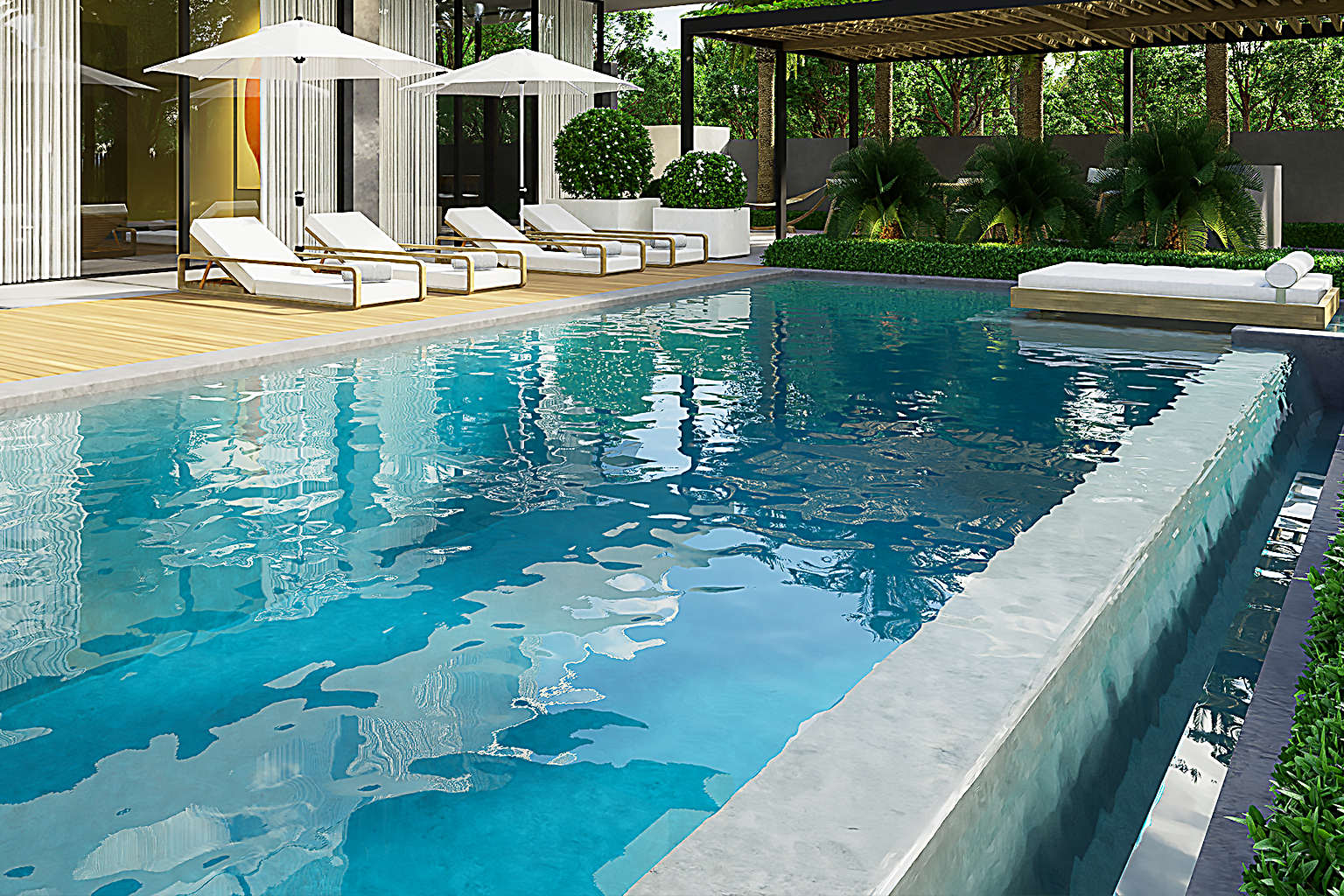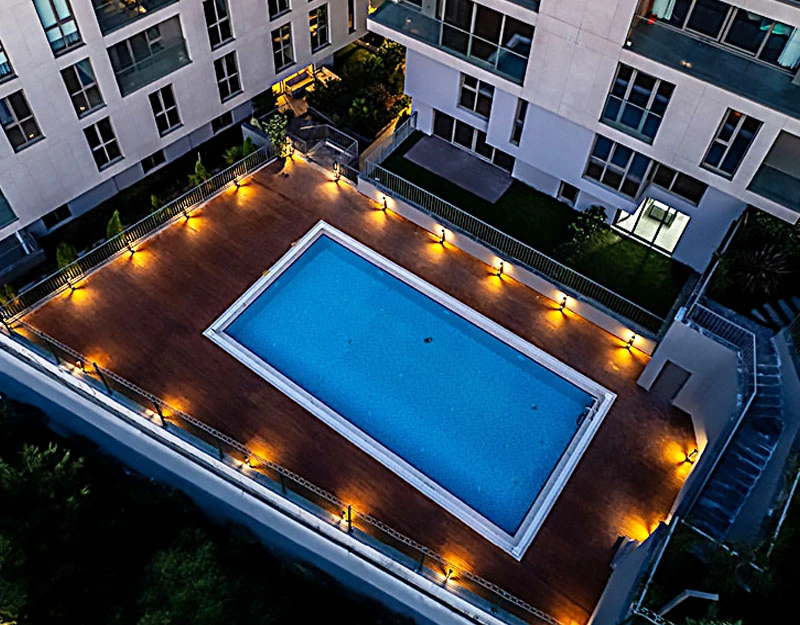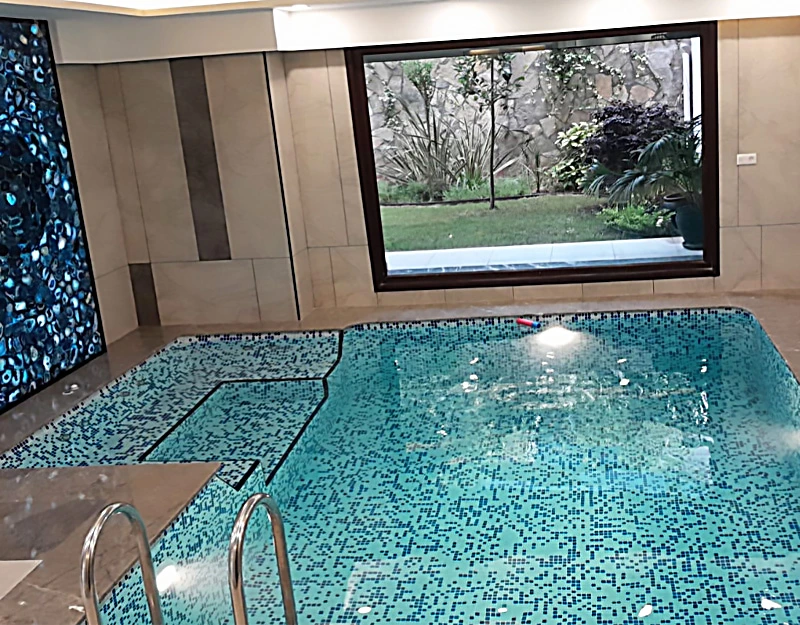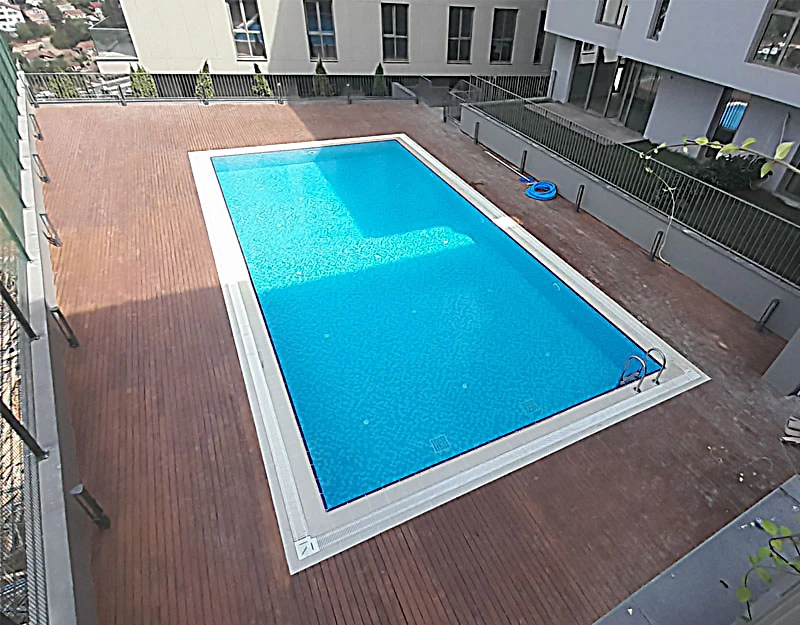Introduction: Enjoy Swimming Regardless of the Season
Swimming is one of the most important activities for improving fitness and enhancing quality of life. However, outdoor pools depend on weather conditions and can only be used during certain periods of the year. At this point, indoor swimming pools stand out by offering comfortable use throughout all four seasons.
Whether in hotels, sports complexes, or private villas, indoor pools provide users with uninterrupted swimming opportunities all year long. In modern architecture, they are not only sports areas but also symbols of luxury and healthy living.
Advantages of Indoor Swimming Pools
1. Year-Round Use
- • Enjoy warm water even on cold winter days.
- • Don’t miss out on swimming during rainy or windy weather.
- • In summer, swim in a refreshing and climate-controlled environment.
2. Comfort and Privacy
Indoor pools, especially those in private villas, offer users privacy and comfort. They create a personal space, away from prying eyes.
3. Hygiene and Cleanliness
Because indoor pools are isolated from external conditions, they provide a more controlled hygienic environment. They are unaffected by dust, leaves, and insects.
4. Long-Term Durability
Protected from outdoor factors, indoor pools are structurally more durable. Chemical balances are easier to maintain, and water quality remains more stable.
